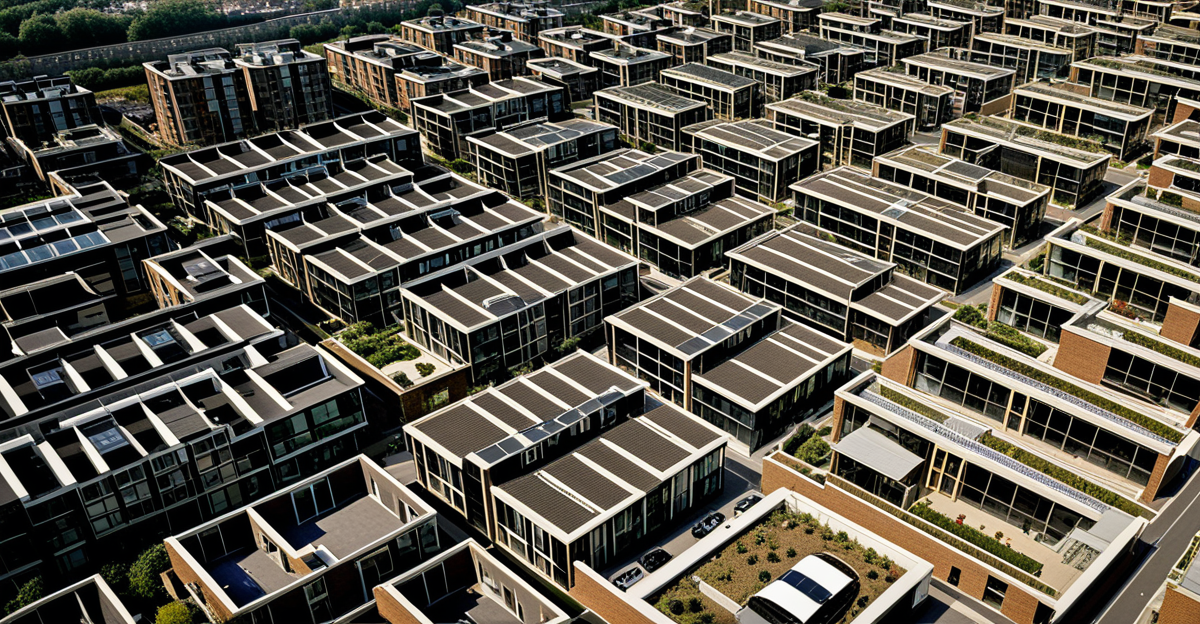Emerging Trends Shaping the UK Real Estate Market
The emerging real estate trends UK are strongly influenced by technology, sustainability, and shifting demand patterns. Digital transformation is reshaping how property transactions and management occur. Virtual tours, blockchain for secure contracts, and AI-driven market analytics streamline processes, offering transparency and efficiency rarely seen before in the sector.
Sustainability is no longer optional; it’s a critical priority. Current real estate developments increasingly incorporate energy-efficient designs, renewable materials, and smart systems to reduce carbon footprints. This emphasis on sustainable building not only meets regulatory demands but attracts environmentally conscious buyers and tenants.
In the same genre : Why Are Real Estate Investments in the UK Considered Secure?
Post-pandemic shifts are redefining demand. Residential preferences now favor more spacious homes and flexible working environments, while commercial real estate adapts to hybrid office models and evolving retail strategies. This change challenges developers and investors to balance traditional assets with innovative projects that respond to lifestyle and business transformations.
Together, these property market innovations reflect a dynamic landscape. They promise to enhance value, sustainability, and adaptability in the UK’s real estate sector. Embracing these trends allows stakeholders to navigate future challenges with confidence and agility.
Additional reading : How Can New UK Real Estate Legislation Impact Property Investors?
Direct Economic Impacts of Real Estate Trends
The UK economy real estate impact is significant, with the sector driving substantial employment and investment activity. Recent shifts in the property investment trends reflect growing interest in sustainable and tech-enabled developments, which often command higher premiums. This shift positively influences capital flows, redirecting funds toward innovative projects that align with emerging priorities.
A crucial direct impact is on real estate sector employment. Construction and property management have seen job growth, particularly in roles connected to emerging technologies like digital management platforms and green building techniques. This demand not only supports skilled labor but also fosters new training and educational opportunities, equipping workers for the evolving market.
Housing availability and affordability remain pressing concerns. While UK economy real estate impact includes new builds and renovations, pricing pressures persist in many urban areas, influenced partly by investment focus on high-value properties. Balancing investment in luxury and affordable housing is a vital component of managing the sector’s overall economic contribution.
In summary, these economic impacts reflect a sector in transformation, where job creation, capital movement, and housing dynamics intertwine to shape both local and national economies.
Indirect Economic Influences and Sector Interlinkages
The real estate influence on UK GDP extends far beyond direct construction and property transactions. Property market activity generates substantial spillover effects in related sectors such as finance, retail, and professional services. For example, increased development raises demand for banking services, legal advice, and architectural consultancy, reinforcing economic growth across multiple industries.
These sectoral connections create a multiplier effect, where investments in real estate amplify economic activity. This integration enhances stability by diversifying income sources tied to the property market and economic growth. Moreover, real estate’s role in supply chains supports employment not only in construction but also in retail outlets supplying building materials and household goods.
Regional disparities also reflect the impact of property markets. Urban regeneration projects stimulate local economies by attracting businesses and residents, improving infrastructure, and increasing tax revenues. Conversely, lagging property development in some regions may slow economic progress, underscoring the importance of balanced growth strategies.
In summary, the real estate influence on UK GDP is multifaceted. It ties closely with other economic sectors, shaping growth patterns and playing a critical role in addressing regional development challenges. Understanding these connection points supports more effective economic and policy planning.
Real-World Examples and Expert Insights
Explore real estate case studies UK to understand how tech-driven developments shape urban landscapes. For instance, in London and Manchester, projects integrating smart building systems and AI-enhanced management platforms demonstrate increased efficiency and tenant satisfaction. These property market innovations highlight practical benefits such as reduced operational costs and enhanced security features, offering scalable models for future developments.
Sustainability-focused initiatives serve as compelling examples of economic and environmental gain. Notable current real estate developments prioritize energy-efficient materials and renewable energy integration, resulting in lower emissions and compliance with evolving regulations. Experts emphasize that such efforts not only attract eco-conscious tenants but also enhance long-term asset value.
Market forecasts, based on expert real estate analysis, predict continued growth in demand for flexible commercial spaces and green residential projects. Anticipated shifts include greater adoption of technology in property transactions and management, aligning with emerging trends shaping the UK real estate market. These predictions aid investors and policymakers in identifying promising opportunities and risks, making informed strategic decisions essential for navigating this evolving sector.
Emerging Trends Shaping the UK Real Estate Market
The emerging real estate trends UK showcase a pronounced shift towards digital transformation. Property transactions now leverage technologies like virtual tours and AI-powered analytics, streamlining processes and reducing friction. These property market innovations enhance transparency and efficiency, making buying, selling, and managing properties more accessible to a broader audience.
Sustainability stands out prominently among current real estate developments. Projects increasingly integrate energy-efficient systems, renewable materials, and smart building technologies. These eco-conscious designs address regulatory pressures and appeal directly to tenants and buyers who prioritise environmental responsibility.
Post-pandemic dynamics have reshaped both residential and commercial demand. Homebuyers seek larger, flexible spaces equipped for remote work. Meanwhile, commercial properties evolve to support hybrid work models and reconfigured retail formats. These shifts compel developers to innovate, aligning developments with changing lifestyle needs and commercial viability.
Collectively, these trends reflect a market adapting swiftly to new technologies, sustainability criteria, and evolving occupant preferences. The interplay of these factors defines much of the emerging real estate trends UK, positioning the sector for continued transformation and resilience.







